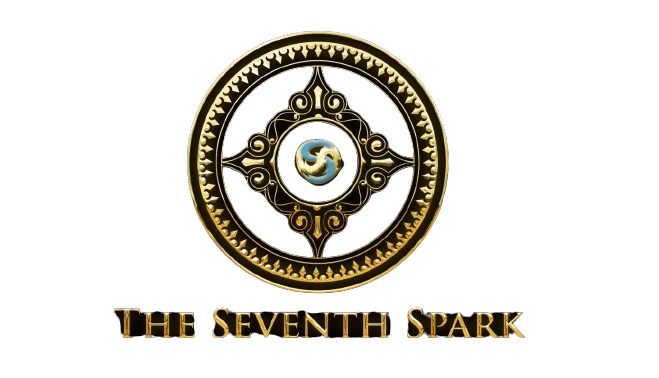What Is The Difference Between Epic Fantasy And High Fantasy?
Many enthusiasts of fantasy literature, disappointed by the fact that the Tolkien tradition doesn't resonate with the individual, find pleasure in various other forms of fantasy literature. Although Tolkien's high fantasy remains immensely popular, it's just one of the many subgenres within fantasy that cater to different tastes. The diversity within fantasy subgenres often leads to confusion as they frequently intersect, blurring the lines that separate them.
The more traditionally favored branches of fantasy generally align into four primary categories, often intertwining: high fantasy, epic fantasy, heroic fantasy, and sword and sorcery. But what sets these closely linked subgenres apart? While many of these conventional forms portray a simplistic dichotomy between good and evil, featuring morally upright protagonists, there has been a significant expansion in the realm of fantasy subgenres in recent years. There's a noticeable trend towards exploring moral ambiguity and gritty realities within fantastical settings, diverging from the more simplistic narratives of yore.
Tolkien's Influence: Distinguishing High Fantasy from Epic Fantasy
Frequently, the fantasy genre popularized by Tolkien, although existing long before his time (think Beowulf or The Iliad), is labeled interchangeably as either high fantasy or epic fantasy. However, are these terms truly interchangeable? While they frequently complement each other, I contend that they represent distinct subgenres. So, what sets them apart?
Epic fantasy, as the name suggests, revolves around the grandeur and magnitude of the narrative. An epic story unfolds on a scale that encompasses entire worlds or universes. It transcends the confines of mere villages, cities, or countries, sprawling across vast landscapes and involving a multitude of characters, often necessitating a character list to navigate. These narratives typically span epic lengths, resembling weighty tomes capable of serving as makeshift weights or sturdy doorstops. In terms of morality, epic tales often portray a stark contrast between good and evil, light and dark, akin to the eternal struggle between Jedi and Sith, the forces opposing Sauron's dominion in Middle Earth, or Belgarion's fellowship confronting Torak in The Belgariad. Magic and quests are common elements in epic fantasy, traits shared with the high fantasy subgenre.
High fantasy distinguishes itself primarily through its emphasis on characters rather than the grand scope of events. The world within high fantasy often features meticulously crafted and distinct magical systems with well-defined rules. While quests are prevalent in both high and epic fantasy, high fantasy places greater emphasis on the journey of one or a few protagonists, with their choices and actions taking center stage. To illustrate this contrast, consider The Iliad, with its sprawling cast of characters and overarching war narrative, as an example of epic fantasy, while its counterpart, The Odyssey, focuses on the personal journey and achievements of a single individual, serving as a prime example of high fantasy.
Sword-Wielding Heroes and Magical Mastery
Within the realm of fantasy, two frequently conflated subgenres are heroic fantasy and sword and sorcery. Adding to the confusion, these subgenres are sometimes regarded as "sub-subgenres" that can easily fall within broader classifications such as high or epic fantasy. Heroic fantasy narratives are characterized by action-packed adventures featuring a single central hero, possibly supported by a cast of allies aiding the hero's quest. Positioned somewhere between the grandiosity of high fantasy and the more personal focus of low fantasy, heroic fantasy strikes a balance, neither overly expansive in scope nor entirely fixated on the protagonist's individual objectives. Crucially, heroic fantasy requires heroism, wherein the protagonist's pursuits align with moral principles. The hero typically lacks excessive flaws, exhibits self-sacrifice, and achieves success only through perseverance and diligent effort.
So, what distinguishes heroic fantasy from sword and sorcery? Sword and sorcery can be considered the pulpy cousin of heroic fantasy. Often credited as the "fathers" of the sword and sorcery subgenre are authors like Fritz Leiber, Robert E. Howard, and Michael Moorcock. One of the most iconic original sword and sorcery tales is Robert E. Howard's Conan the Barbarian. Unlike heroic fantasy, the settings in sword and sorcery stories are typically less intricately developed, though they often feature exotic and vivid physical descriptions. Furthermore, the protagonists of sword and sorcery tales tend to exhibit moral ambiguity, sometimes embarking on paths of redemption that lead them to engage in morally questionable actions.
Exploring the Spectrum: Fantasy Subgenres
High, epic, heroic, and sword and sorcery represent just a fraction of the myriad fantasy subgenres adorning the shelves of your local bookstore. Among the alternative subgenres are dark fantasy, steampunk, erotic, paranormal, romance, mythic, alternate history, sword and sandals, sword and planet, grimdark, and urban fantasy, to name a few. Many of these subgenres emerged as a response to traditional fantasy narratives epitomized by authors like Tolkien. Unlike their predecessors, these newer genres delve into darker themes and explore the gritty, realistic aspects of fantastical settings, eschewing moral certainties and embracing complexity.
Amidst this vast array of fantasy subgenres, it's disheartening when people dismiss the entire genre of fantasy without exploring its diverse offerings. Do they genuinely dislike the entire genre, or have they merely sampled one subgenre? Fantasy encompasses far more than wizards, elves, magic wielders, or sword-wielding barbarians. If you've yet to venture beyond the confines of mainstream fantasy, perhaps now is the perfect opportunity to broaden your horizons and delve into the rich tapestry of fantasy subgenres awaiting discovery.




